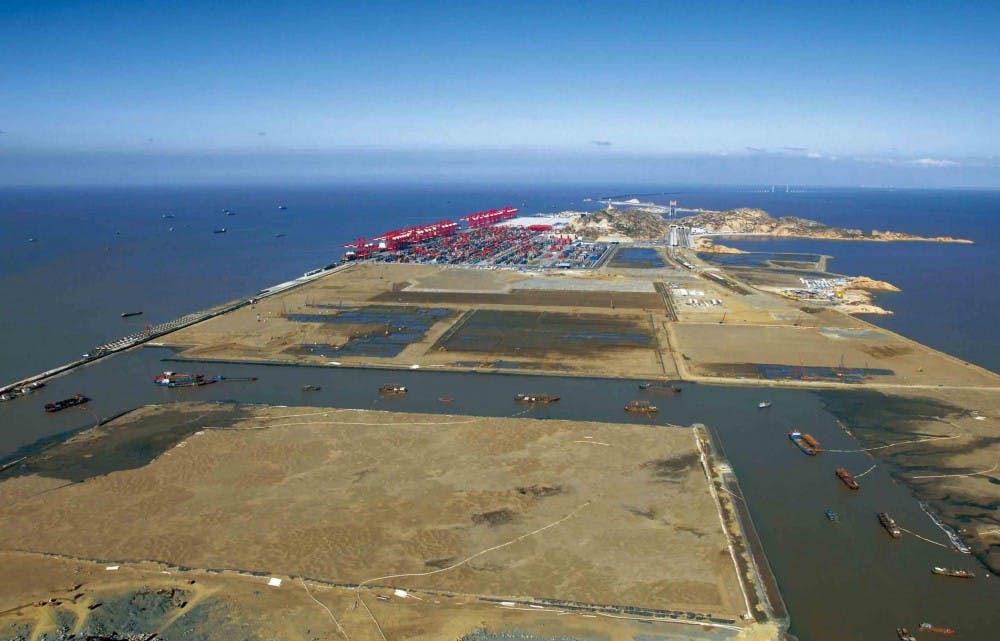China is growing. Its economy is growing, its military is growing and even its landmass is growing.
In a 2015 report to Congress, the Department of Defense paid particular attention to the People’s Republic of China’s reclamation of land in the South China Sea. China reclaimed about 500 acres of land from areas in the sea by late December 2014, according to the Pentagon report.
By June 2015, China added nearly 3,000 acres of artificial islands to its self-prescribed territory, reported The Wall Street Journal. The region in the South China Sea that is being reclaimed is known as the Spratly Islands archipelago and the archipelago is in disputed international waters.
International agreements grant nations territorial claims to waters surrounding their borders up to 12 miles, leaving the Spratly Islands deep in international seas. China disputes the ownership of the South China Sea, arguing that the newly created islands are under their sovereignty, along with the surrounding waters.
The U.S. challenged the legitimacy of China’s new lands when it sent a warship into the 12-mile zone off the coast of one of the artificial islands last week. According to PBS, the USS Lassen (DDG 82), a guided missile destroyer, deliberately passed by one of the islands to send a message to China — the U.S. does not recognize the islands’ sovereignty. The two nations continue to accuse each other of wrong-doing.
“If any country wishes to disrupt or impede China’s reasonable, justifiable and lawful activities on our own territories by playing some little tricks, I would advise these countries to cast off this fantasy,” said Lu Kong, the Chinese foreign ministry spokesman, according to PBS. The nation’s foreign ministry also released a statement describing the U.S.’s naval maneuver as threatening and provocative to China’s sovereignty.
While headlines focus on the exchange of words between the two nations, there is still a question that has gone unanswered: Why is China going through the trouble of creating islands in the middle of the South China Sea?
Their location, after all, is hundreds of miles closer to Vietnam, the Philippines, Malaysia, Brunei and Indonesia than it is to the Chinese mainland.
“Although it is unclear what will ultimately be built on these expanded outposts, they could include harbors, communications and surveillance systems, logistics support and at least one airfield,” the Pentagon’s report states.
Photographs, such as those from the Center for Strategic & International Studies, show the construction of airstrips, ports and other facilities. China repeatedly denied that the islands are strictly for military uses, but the Pentagon recognized that the infrastructure could be used exactly for those purposes.
Surrounding nations continue to quarrel over the ownership of the South China Sea, according to the Sydney Morning Herald. The sea is home to vast quantities of oil and natural gas reserves, according to the Asia Maritime Transparency Initiative, making it an economically desirable region. Furthermore, a network of trade routes pass through the area, making the Spratly Islands a prime location for harbors.
They also serve as a key strategic location for China’s military, as the nation could assert its control over the region and potentially manage the flow of international trade. This is where American interests get involved, as the Top 10 imports to the U.S. are shipped through the area, according to the Los Angeles Times. The Pentagon said that it is vital to keep international waters free and open to vessels, a message that the USS Lassen was sending when it passed by one of the islands.
If the territorial dispute and construction of outposts in the region is not alarming enough, Chinese President Xi Jinping is leading a national rejuvenation referred to as the “China Dream.” The Pentagon said it is part of the nation’s modernization efforts to have China competing economically and militarily in the global community.
While China’s interests may be innocent and undamaging to the U.S., a significant portion of its economy is reliant on the stability of the region. If the stability is undone by continual provocative action from any nation, then the effects will trickle down to the wallets of American citizens.





The Slate welcomes thoughtful discussion on all of our stories, but please keep comments civil and on-topic. Read our full guidelines here.